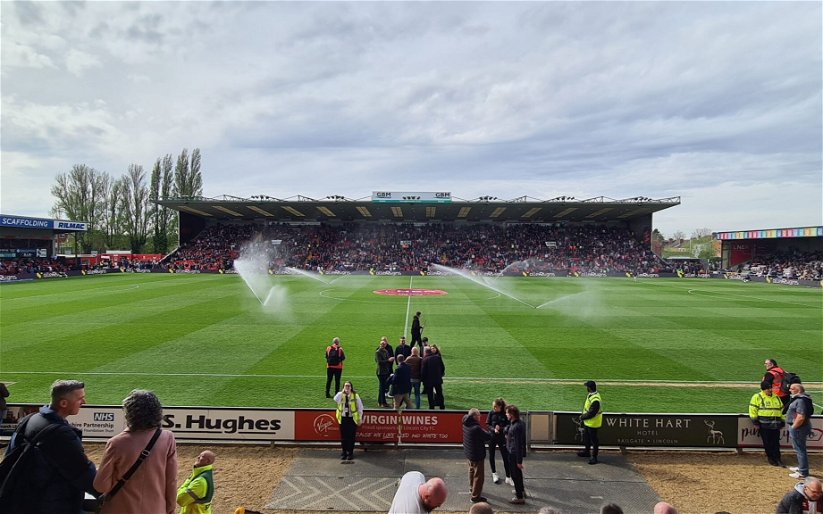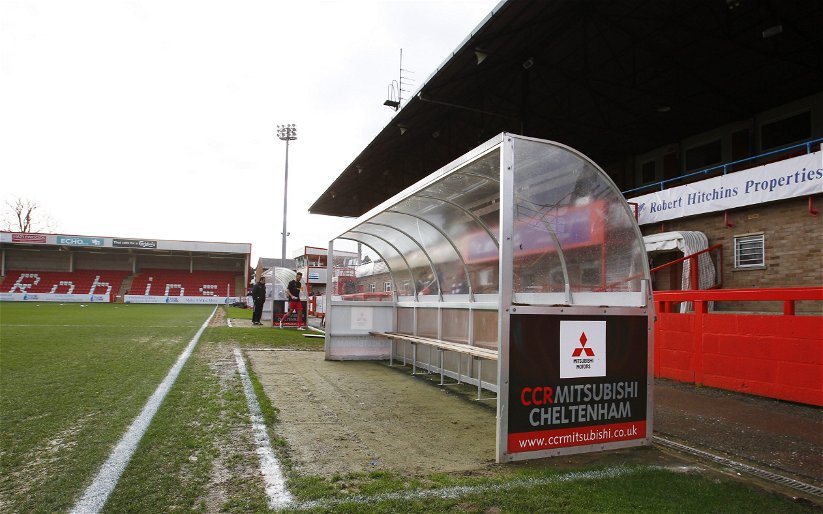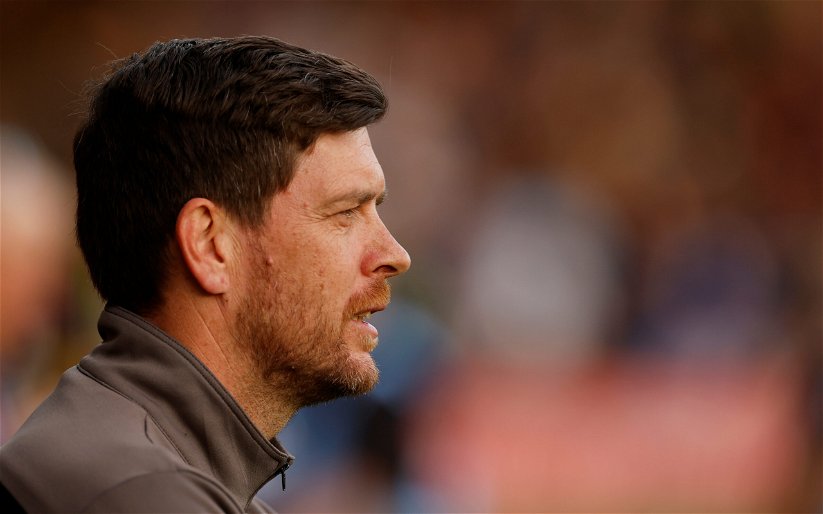Although enjoying a lengthy playing career with a number of clubs, Darren Moore has become associated mainly with West Bromwich Albion and his turbulent twelve months as manager. A dominant centre half on the field and a devout Christian off it, Moore has followed an interesting path through the football landscape. For instance, there cannot be many people who have achieved the unusual double of being named Manager of the Month and being relegated on the same day.
Born and bred in Birmingham and brought up supporting Aston Villa, the young Darren Moore had an unsuccessful trial with local club Walsall at the age of fifteen. While playing for local team Holly Lane Colts, Moore and the Holly Lane goalkeeper were later offered trials by perennial Fourth Division strugglers Torquay United, and Moore was made an offer. Signing as an apprentice in June 1990, he watched from the sidelines as Torquay had their best season for twenty years in 1990-91. Winning promotion to Division Three via a 5-4 play-off final win over Blackpool, Torquay were already heading straight back down to the fourth tier by the time he made his debut against his home town team Birmingham in March 1992. Moore tells the story that he was called up to play just seventy minutes before kick-off. He obviously made an impression because he went on to make five appearances before the season ended.
Having turned professional in November 1992, he established himself in the side very quickly. Torquay finished just seven points clear of relegated Halifax in their first season back in the basement, but the 1993-94 season was much better with a sixth-place finish taking them back to the play-offs. Moore scored the first goal to help his side to a 2-0 first-leg lead over Preston, but Torquay went down 4-1 after extra time in the second leg. Torquay slipped back to mid-table in 1994-95, and when an offer came in from Doncaster Rovers, Moore was on his way north for a club-record £62,500 on 19 July 1995. He later claimed he only signed for Doncaster because it was closer to home, but that may well have been because he was also offered a trial at Dundee at the same time.
One thing is for sure: Moore later cited the day he signed for Torquay as his favourite moment in football. In all competitions, he made 124 appearances for the Plainmoor club, scoring twelve times.
New club Doncaster Rovers were also in the bottom tier at that time, and things were set to get far worse for them as they headed slowly towards relegation to the Conference. They finished thirteenth in Moore’s first season of 1995-96, and actually occupied bottom place at the end of February 1997 until an unexpected run of four wins and two draws carried them to safety. They had finished only five points clear of relegation however, and Moore was their best player by a significant margin. It was almost inevitable that he would move on from such a deteriorating club, and he signed for Bradford City on 18 June 1997 for an impressive £310,000 fee. It should be noted that without Moore, Rovers were destined to slip from the Football League the following season with barely a whimper. He made 76 appearances for Rovers, scoring seven goals.
And so it was on to Bradford City, who had narrowly avoided relegation from the First Division(tier 2 by that time) by a two-point margin. Injuries restricted Moore to just seventeen appearances during his first season of 1997-98 and he hardly played after Christmas as Bradford finished mid-table. But it was all very different in 1998-99, Despite collecting just one point from their opening four games, Bradford stormed to promotion to the top flight for the first time since 1922. Moore missed just two league games of the campaign and was looking forward to playing in the Premier League for the first time. Unfortunately, it all went wrong at that point, and a protracted contract dispute with chairman Geoffrey Richmond meant that he was frozen out thereafter. After five months without a resolution, he knew he had to leave, and returned to the second tier with Portsmouth on 15 November 1999 for £500,000. Moore later called the impasse at Bradford and his failure to play in the Premier League ‘gut-wrenching’, and stated that it was only his new-found faith that got him through it.
His time at Portsmouth got off to a terrible start. Manager Alan Ball was sacked a couple of weeks later and Moore lost his first seven games. The run saw them slip into the bottom two, but five wins in March led to an eighteenth-place finish. He was named captain in 2000-01 but the season was another one full of problems. Portsmouth got through three managers that season – Tony Pulis, Steve Claridge and controversial Graham Rix – and it was little wonder that relegation-threatened again. Nine games without a win saw Portsmouth go into the final game third from bottom and needing points from their home match against Barnsley. On a dramatic afternoon, a 3-0 win combined with Huddersfield’s home defeat to Birmingham kept Pompey up by a single point. It was during his time at Portsmouth that he won his three caps for Jamaica, although Moore believes he played half a dozen games for them. Some counted as full internationals, some did not.
Considering the problems at Portsmouth during his two years there, it is some achievement that Moore managed to maintain his status as one of the best centre-halves outside the Premier League. That stood him in good stead when West Bromwich Albion came in for him on 14 September 2001 for £750,000. Albion had missed promotion to the Premier League in May with a play-off semi-final defeat to Bolton and had high hopes under manager Gary Megson. Moore made his debut in a 2-1 win at Watford the following day and it was the start of a great season. West Brom sat just off the pace in seventh at the turn of the year, and then began a terrific run of thirteen wins and three draws that took them to the verge of promotion. Mid-table Crystal Palace were the visitors to The Hawthorns on the final day, and a Darren Moore volley in the first half set them on their way to a 2-0 win. Albion set a club record 27 clean sheets that season and conceded just 29 league goals, which earned Moore a place in the PFA Division One Team of the Year. There was also a run to the quarter-finals of the FA Cup where they went down 1-0 at home to Fulham.
So Darren Moore had won his second promotion to the Premier League, and his Bradford nightmare could be forgotten. Having become known to the fans as Big Dave, he made his belated Premier League debut on the opening day at Old Trafford, and Albion came away with a creditable 1-0 defeat. They lost their first three games before three successive wins raised hopes of a decent season. Unfortunately, the resulting seventh place was as good as it got, and Albion’s season collapsed thereafter. There were to be just three more wins as they were relegated well before the end of the season. Albion started the 2003-04 back in the First Division with a crushing 4-1 defeat to neighbours Walsall, but that proved to be the low point. They rose into the top two in October and stayed there for the entire season, winning promotion back to the Premier League at the first attempt with a 2-0 win over Moore’s former club Bradford with three games to spare. Once again, Albion had conceded less than a goal a game.
Incidentally, he acquired the nickname Big Dave not due to any particular physical attribute, but to his alleged similarity to a character in a Pot Noodle advert from the year 2000.
The 2004-05 season was never to be forgotten by any West Brom fan. Gary Megson was sacked after an extremely poor start, and Albion were bottom of the table with one solitary win from their first twenty-three games. Legendary Albion midfielder Bryan Robson returned in November, but things improved only very slowly. Moore lost his place in the side before a 2-0 win over neighbours Birmingham in March ignited the season. Albion lost just one game in seven to give themselves a fighting chance of survival, but went into the final day bottom of the table and needing a win. They also needed results elsewhere to go their way, and a perfect storm took place that Sunday afternoon. Albion beat Portsmouth 2-0 at The Hawthorns while defeats for Norwich and Southampton put them down. Crystal Palace led at Charlton with eight minutes to go but a late equaliser at The Valley kept Albion up.
Just four days later, Moore found himself walking a section of the Great Wall of China to raise funds for charity Faith & Football. In the company of former team mates Linvoy Primus and Wayne Jacobs, and walking for eight hours a day in thirty-degree temperatures and camping overnight, Moore and his friends raised over £50,000 for projects in Nigeria and Goa.
Although he had only made 16 league appearances in 2005-05, Moore went into the 2005-06 season hopeful of a better return. Unfortunately, he was sent off during a 1-0 win at Wigan in January and never appeared for West Brom again. On 26 January 2006, he was sold to Championship Derby County for an initial £300,000, rising to £500,000 based on appearances. In one of those strange quirks of fate, manager Phil Brown was sacked four days later with Derby hovering just above the relegation zone. They did enough to stay up as the season fizzled out, but it was not the most promising of starts to Moore’s Derby career. Their final position of twentieth did not suggest a great season ahead in 2006-07, but after a slow start Derby surged up the table under new manager Billy Davies to eventually finish third. Having disposed of Southampton on penalties in the play-off semi-final, a Stephen Pearson goal was enough to beat former club West Brom at the new Wembley. Derby were back in the top flight after five years away, and Moore had his fourth promotion to the Premier League. Personal reward came when Moore was named in the PFA Championship Team of the Year.
Derby’s first season back in the Premier League was a huge disappointment, to say the least. A poor start led to the dismissal of Billy Davies, and his replacement Paul Jewell was unable to halt the slide. Derby won just one game all season – a 1-0 win over Newcastle in the third home game – and recorded the worst season in Premier League history. They are the only team ever to be relegated in March and also recorded the lowest points total since the move to three points for a win (13). Being named Player of the Season was probably scant consolation for Moore. Derby indicated he could leave during the summer, and he came close to rejoining former club Bradford. However, it was Yorkshire neighbours Barnsley who captured Moore on a two-year deal on 2 July 2008.
His time at Oakwell was to be undistinguished. Barnsley lost five of their opening six games in 2008-09 and languished in the bottom four with four games remaining. A late rally of three draws and a win was enough to keep them up in twentieth place. The 2009-10 season was very similar with an eighteenth-place finish before Moore was released at the end of the season.
At the age of almost 36, Moore could have called it a day. There was to be one more stop, however, and on 7 May 2010, he signed for former Derby team mate Paul Peschisolido who was manager at League Two Burton Albion. In their second season as a League club, Burton had a poor season under Moore’s captaincy and were only out of the bottom two on goal difference with six games to play. Two wins and four draws took them clear of relegation, and Lincoln went down instead. Always very busy off the field, he received the PFA Player In The Community Award in March 2011, and in September 2011 he became an Honorary Patron of the Show Racism The Red Card group.
And that was fairly much it for Darren Moore. Having made five more appearances in 2011-12, he left Burton by mutual consent on 7 February 2012 and played a few games for Wellington Amateurs, ostensibly to stay fit. At that point, it was clearly time to consider his options carefully, and he decided to retire from playing at the age of 38. There was never any doubt that coaching would be the next step, and probably only one place to begin. On 9 June 2012 Moore rejoined former club West Bromwich Albion as professional development coach with the U18 side.
In January 2013 Moore was appointed first-team coach at Blackburn under their new manager Michael Appleton, an old colleague from West Brom. However, it turned out to be a very bad move: Appleton lasted just fifteen games and sixty-seven days before being sacked. Moore was dismissed at the same time and found himself on the job market for the first time in his life.
Always interested in the running of the game itself, Moore was a PFA player delegate during his playing days and was appointed to their team of regional coaches shortly after leaving Blackburn. He was also one of the first to go through the PFA’s On The Board course designed to give players from minority backgrounds the skills needed to make the transition from playing to the boardroom. In March 2014 he developed his work with the PFA further by becoming Equalities Executive in Coaching. Having already served on the PFA Management Committee, part of his new remit was to address the under-representation of black players in coaching and management. It is a nice thought that his work in this area contributed to his own later appointments in the game. In 2014 he expanded his work outside of the game by joining the Board of Trustees of the Kaleidoscope Group.
On 1 September 2014, he returned to West Brom as professional development phase coach, with an additional responsibility to oversee the progress of young players out on loan. Although working specifically with the U18 and U21 players, Moore immediately stated his desire to progress to working with the first team. He had to wait until 2017-18 season for his opportunity. After a run of eight successive defeats had left Albion bottom of the Premier League and staring relegation in the face, manager Alan Pardew was sacked on 2 April 2018. Moore was appointed on a caretaker basis to the end of the season, thus earning the distinction of being the first Jamaican to manage in the Premier League. It was a popular appointment with the fans, who were tired of being victims of the managerial merry-go-round. Albion had suffered a dozen managers in eight years, and at least Moore was one of their own. It appeared that he had been asked simply to oversee the dying embers of the season until the club could address the appointment of a permanent manager during the summer, but what happened next changed that.
No one gave Moore any chance of keeping the club up, with many wondering why the directors had kept faith with Pardew for so long. Albion were ten points adrift of safety with six games remaining and had a tough set of fixtures. They drew the first game at home to Swansea, who were also fighting relegation, and it was certainly an opportunity missed. However, Albion went to Old Trafford a week later and came away with a superb 1-0 win with a late Jay Rodriguez goal. Two late goals gave them a point at home to Liverpool, and a win at Newcastle kept the fight alive with two games to play. Unbelievably, a 92nd-minute winner gave them another unlikely win over Spurs in the penultimate game to move Albion to within two points of safety with a game to play, but it was in vain: Southampton’s 1-0 win at Swansea in midweek sent Albion down. Ironically, he was named Premier League Manager of the Month for April on the same day.
Albion immediately started an intensive search for a manager to take them straight back to the Premier League. However, the Albion board had been impressed by Moore’s influence in and around the club during the final weeks, and appointed him permanently on 18 May 2018 on an improved contract. Moore states that confidence was at rock bottom and a lot of rebuilding work was necessary before a ball could be kicked. A lot of familiar faces left the club including Gareth McAuley, Jonny Evans, Ben Foster and James McClean as the club cut its cloth after relegation, and there were no big-name replacements.
A home defeat to Bolton on the opening day was not the ideal start, but Albion fought back with a 7-1 win over QPR in mid-August. They settled into the top two, but one point from four games in October saw them slip out of the top six. Six wins and three draws carried them back up to third at Christmas, but Albion never found real consistency. A 4-0 thumping at promotion rivals Leeds at the start of March proved very damaging and Moore was dismissed after a 1-1 draw at home to bottom side Ipswich on 9 March 2019.
Although well-placed to secure a play-off spot, Albion had fallen nine points behind the automatic promotion places, and that was essentially the requirement. Acrimony was sure to follow, and it was inevitable that attention would be lavished on the colour of his skin. Ultimately, managers are hired and fired on their ability to get results, and West Brom decided that Moore had not achieved the sole objective of promotion back to the Premier League. Whether he would have achieved that via the play-offs will never be known, and that will always remain an unsatisfactory conclusion. However disappointing the outcome, Moore had gained a lot of respect in the game and had set an impressive foundation for whatever was to happen next.
After leaving The Hawthorns, Moore worked with charity Inspire Afrika and furthered his football knowledge with spells behind the scenes at Spurs and MK Dons. His next destination in terms of football management was naturally of great interest to many, and having been heavily linked with Derby County in June, he was appointed manager of League One high-flyers Doncaster Rovers on 10 July 2019. Doncaster missed out on promotion in the play-offs last season and have the squad to challenge again. It will be interesting to see how Moore gets on in the lower divisions, having spent the majority of his career at a higher level. He did play in all four divisions though, and will be very keen to return to the upper echelons with Doncaster as soon as possible.

Key:
P = Promoted; R = Relegated; SF = Lost in play-off semi-final; F = Lost in play-off final; PO = Won play-off final; D = Demoted.
Figures are league games only; cup matches and play-offs are not included.
League position shown is either the position at the end of the season or the position at the time of departure

Writer: Scotimp
Who Are The League One Managers? No.9: Darren Moore (@DRFC_Official):https://t.co/26YoOX7EwJ#DRFC #IRWT #SkyBetLeagueOne
— Vital Lincoln City (@VitalLincoln) July 19, 2019
https://www.facebook.com/VitalLincolnCity/posts/2305792852790280



